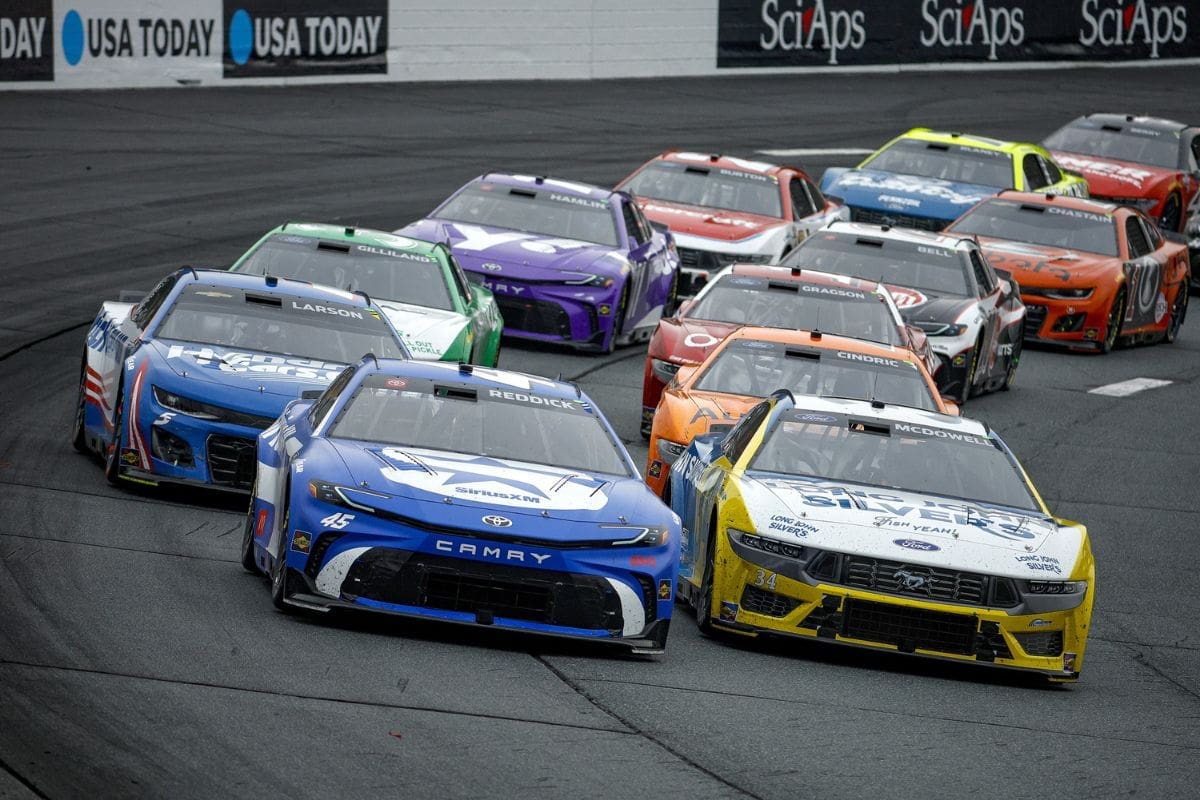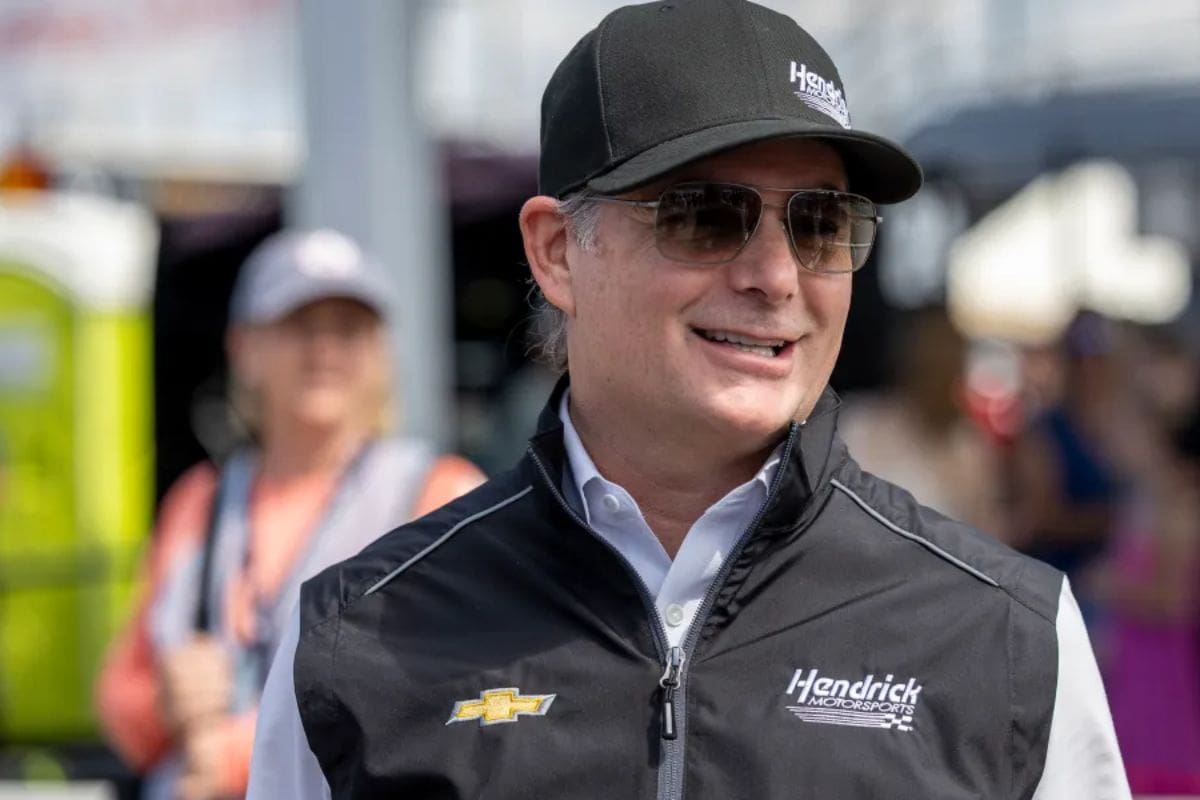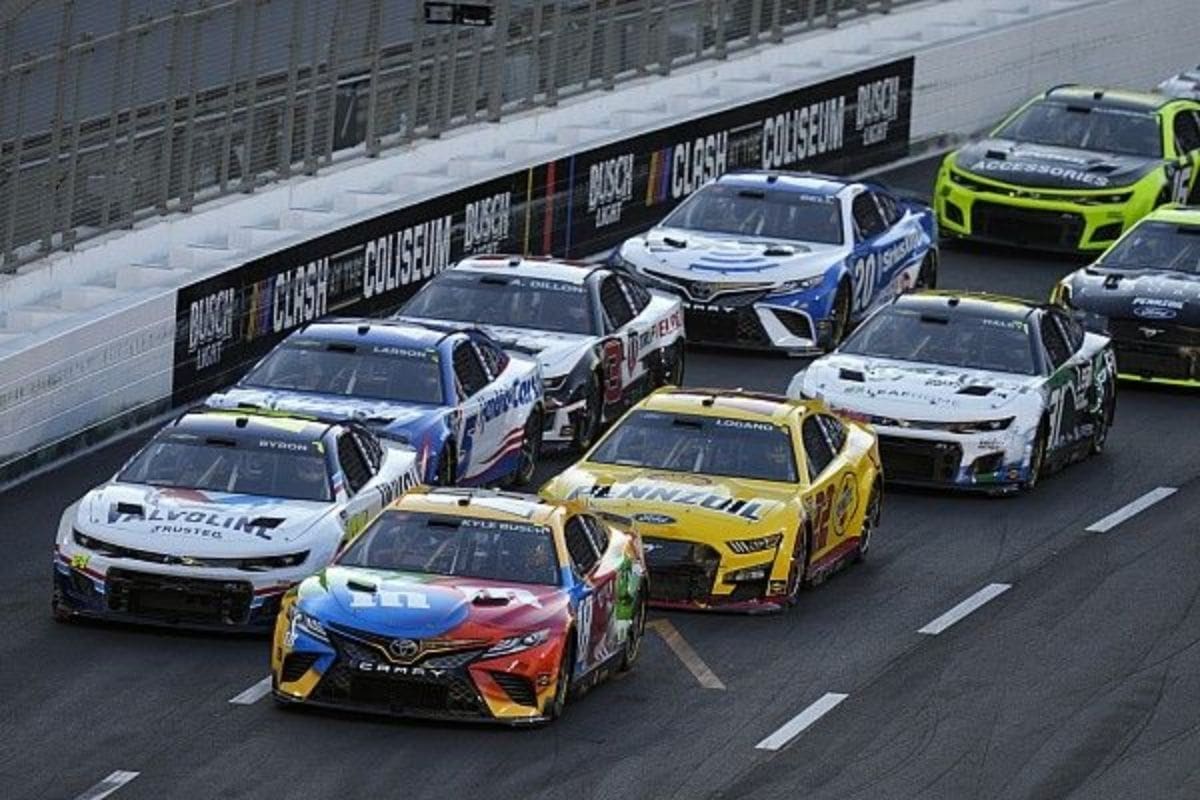Rick Hendrick’s NASCAR Charter Deal Controversy: The recent endorsement by Jeff Gordon of Hendrick Motorsports‘ acceptance of the new charter agreement has ignited a considerable debate among fans, who argue that this decision undermines the efforts of 23XI Racing, spearheaded by Michael Jordan, to promote genuine representation within the sport. Critics contend that Hendrick’s prioritization of stability over equity not only dilutes Jordan’s advocacy but also raises troubling questions about the integrity of NASCAR’s competitive landscape. As the implications of this endorsement unfold, one must ponder the broader ramifications for team dynamics and the future direction of the series.
Key Highlights
- Jeff Gordon’s acceptance of the charter agreement reflects a pragmatic approach, contrasting with 23XI Racing’s refusal to sign for equity.
- Fans believe Hendrick Motorsports’ decision undermines Michael Jordan’s stance for fair negotiations within NASCAR.
- The divide between established teams like Hendrick and newcomers like 23XI Racing highlights growing tensions in the league.
- Gordon’s critique of NASCAR’s approach suggests a broader issue of team autonomy that diminishes Jordan’s efforts for change.
- The fan sentiment indicates a desire for authenticity in racing, viewing Hendrick’s acceptance as a setback for 23XI Racing’s advocacy.
23XI Racing’s Opposition and Hendrick Motorsports’ Decision
In the evolving landscape of NASCAR the recent charter agreement has ignited considerable disagreement, primarily spearheaded by 23XI Racing, which has emerged as a vocal dissenter against the terms proposed by NASCAR. Co-owned by basketball legend Michael Jordan and veteran driver Denny Hamlin, 23XI Racing’s stance reflects a growing discontent regarding perceived inequities within the sport. Their refusal to sign the charter highlights a demand for more equitable negotiations, a call met with notable silence from NASCAR’s leadership, thereby exacerbating tensions within the league.
This discord is amplified by the contrasting response from Hendrick Motorsports, led by Jeff Gordon, who chose to sign the agreement. This decision not only creates a rift between established teams and newcomers but also places 23XI Racing in an increasingly isolated position. The backing down of Hendrick Motorsports—an organization synonymous with success and influence in NASCAR—has left 23XI Racing with minimal support, now solely relying on Front Row Motorsports to share their concerns.
The implications of these divergent paths extend beyond mere contractual negotiations; they illuminate an internal power struggle within NASCAR. The organization’s insistence on uniform compliance from teams hints at an overarching strategy to consolidate control, while 23XI Racing’s push for dialogue suggests a desire for reform and inclusivity.
Hendrick Motorsports’ Rationale for Signing the Agreement
Recognizing the importance of stability in an increasingly competitive NASCAR landscape, Hendrick Motorsports strategically opted to sign the new charter agreement. This decision reflects a tactical foresight inherent in the team’s operations, particularly given the shifting dynamics within the sport.
With four charters in the Cup Series and a roster comprising elite drivers such as Kyle Larson, Chase Elliott, Alex Bowman, and William Byron, Hendrick Motorsports is acutely aware that maintaining competitive advantage requires a solid foundation.
Rick Hendrick, the team owner, has illustrated a clear understanding of NASCAR’s intricate framework, emphasizing the necessity to secure the team’s future amidst uncertainty.
Jeff Gordon, serving as the vice chairman, articulated that the agreement was fundamentally pragmatic, with consensus among team owners that the opportunity presented by NASCAR was unlikely to improve.
“felt they were never going to get a better offer from NASCAR.” – gordon
This perspective reveals an acute awareness of the economic realities facing NASCAR teams, where fluctuating sponsorships and operational costs demand a proactive rather than reactive approach.
Jeff Gordon’s Earlier Remarks and HMS Response
Throughout the ongoing discussions regarding the charter agreement, Jeff Gordon‘s straightforward remarks have emphasized the deep-seated challenges facing NASCAR teams. Earlier this year, during conversations with Dale Earnhardt Jr., Gordon openly expressed the financial struggles of teams, stating, “There’s 3-4 major things that the team’s been very consistent on talking to NASCAR about… not only help the teams to be profitable… we don’t make money, right?” This statement highlights a persistent concern within the NASCAR ecosystem: the sustainability and profitability of team operations.
In a subsequent interaction with The Associated Press, Gordon noted that the Hendrick Motorsports (HMS) team members responded with indifference to the decision to sign the charter agreement, suggesting a resignation to the circumstances rather than enthusiasm for potential benefits. This nonchalant attitude reflects a broader sentiment within the organization, where the complexities of the current charter system may overshadow any perceived advantages.
Gordon’s comments reveal a detailed understanding of the landscape, illustrating that while HMS is a powerhouse in the sport, the financial realities do not exempt them from the systemic issues affecting all teams.
HMS’s response to the charter agreement highlights the delicate balance between competitive strategy and financial viability. By engaging in this agreement, HMS may be prioritizing stability over innovation, raising questions about the long-term implications for not just their team, but for the wider NASCAR community.
Other Teams’ Reactions and Fan Sentiment
Amidst the prevailing atmosphere of uncertainty and discontent, the reactions from other NASCAR teams to the charter agreement highlight a collective struggle for agency within the sport. Team owners, such as Brad Keselowski of RFK Racing, have expressed a complex relationship with the charter deal. Keselowski articulated the ambivalence felt by many, stating, “I think there are things obviously we would like to have better, but… it’s hard to use the word ‘fair.’”
Correspondingly, Bob Jenkins of Front Row Motorsports voiced concerns regarding the strain placed on teams to acquiesce to NASCAR’s demands, noting that many felt compelled to sign despite their discomfort. This sentiment emphasizes a broader unease among team owners, suggesting a landscape where autonomy is increasingly compromised.
I know a lot of people were uncomfortable but felt like they had to sign.” – Jenkins
These reactions reveal a fractious environment within NASCAR, where teams grapple with the implications of the charter system. As frustrations mount, fan sentiment mirrors this discontent, casting shadows over the future of the sport and its governance.
Fans’ Criticisms and Reflections on NASCAR’s Approach
The dissatisfaction expressed by NASCAR teams reflects a broader discontent among fans, who are increasingly vocal about their concerns regarding the sport’s direction. Central to this discontent is a perception that NASCAR has prioritized financial incentives over the foundational values that once defined the sport.
The emergence of the new charter agreement has not only fractured relationships between teams and the sanctioning body but also emphasized a growing sentiment that financial motivations are dictating the competitive landscape. As one fan pointedly noted, “NASCAR is basically paying the teams to lose money,” highlighting a belief that monetary compensation is overshadowing the integrity of racing.
In this climate, fans have rallied around figures like Michael Jordan and 23XI Racing, viewing their resistance to the prevailing financial ethos as a courageous stand against NASCAR’s perceived greed. This admiration reflects a yearning for authenticity in a sport increasingly seen as compromised by corporate interests.
“NASCAR is the Maf-a, only more ruthless. But the France Family has never had to face an adversary like MJ. I’m rooting for MJ.” – fans’ reaction
The critical voices in the fan community articulate a deeper societal concern; they fear that the sport’s path mirrors broader trends toward corporate complacency and a loss of competitive spirit.
“One 1 hand, it surprises me how many are on the corporate side & siding with NASCAR. But then again, this is how we got into a fa-ist society in America. Many of you just want to be led, no matter the price.”
“That’s an apathetic approach. At least 23XI and FRM have the stones to stand up for what they feel is not an equitable deal. If the other 13 owners want to get dumped on by NASCAR, they should never complain about the cost of racing, ever, again.” – fans reaction
Moreover, criticisms directed at figures like Jeff Gordon highlight a frustration with perceived inaction among established team owners. Fans desire leadership that champions equitable treatment rather than passive acceptance of an inequitable status quo.
News in Brief: Rick Hendrick’s NASCAR Charter Deal Controversy
The controversy surrounding Jeff Gordon’s endorsement of Hendrick Motorsports’ acceptance of the new charter agreement emphasizes a crucial moment for NASCAR. The tension between established teams prioritizing stability and the emerging push for equitable treatment by 23XI Racing, led by Michael Jordan, highlights a fundamental dilemma within the sport. As fans demand greater transparency and representation, the divergent paths taken by these organizations may greatly influence NASCAR’s future dynamics, necessitating a reevaluation of its governance and operational strategies.
ALSO READ: Jeff Gordon Highlights HMS Star’s Vintage Treasure, Exposing NASCAR’s Changing Times



